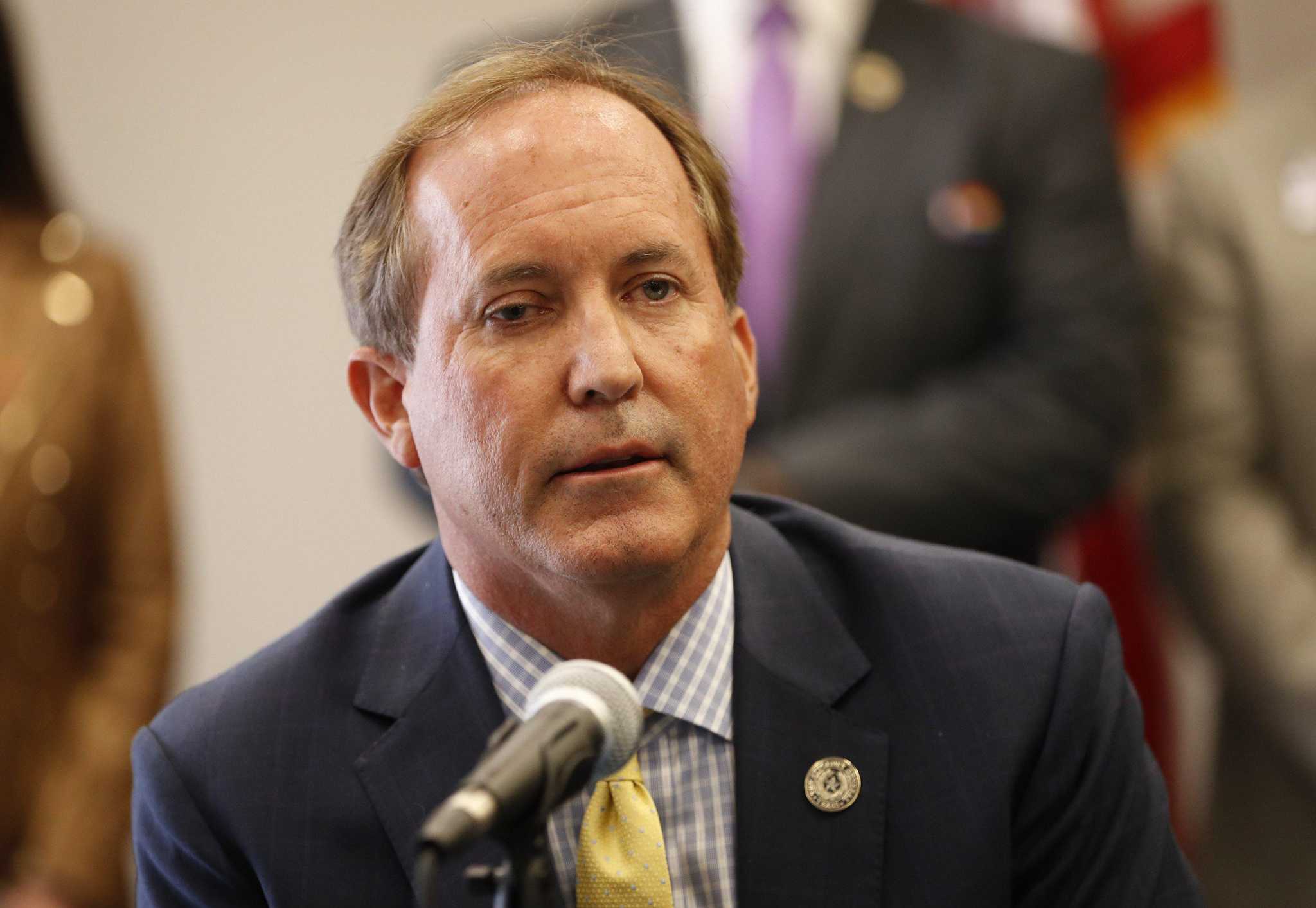At least 72% of AG Ken Paxton’s voter fraud prosecutions target people of color, analysis shows

Since Texas Attorney General Ken Paxton took office in 2015, the vast majority of individuals his office has prosecuted for voter fraud are people of color — and primarily women of color, a new analysis by the American Civil Liberties Union shows.
The analysis, which was based on publicly available documents, media reports and some assumptions based on surnames, found at least 72 percent of all the election fraud cases have been brought against Black and Latino defendants. At least 45 percent were against Black and Latino women. It also found that 86 percent of the prosecutions involved offenses allegedly occurring in counties with majority non-white and Latino populations.
The ACLU has also accused Paxton of exaggerating the number of voter fraud cases to give the impression that it is a growing problem, even when his own data shows otherwise.
The demographic analysis comes as lawmakers consider giving Paxton even more latitude to pursue felony charges against people who submit incorrect information on election-related documents and public officials who send out absentee ballot applications that are not requested.
“There appears to be a large racial discrepancy, a large racial bias in terms of who gets prosecuted,” said ACLU senior staff attorney Tommy Buser-Clancy. “This is deeply disturbing. I think it also should give lawmakers pause, significant pause before they evaluate a bill that would give the attorney general even more tools to go after communities of color, like House Bill 6 would do.”
The bill, along with companion legislation filed in the Senate, would create new offenses for election-related violations, including making it a felony for a public official to give out an absentee ballot application unless it is requested.
Both bills are scheduled to be heard in committees this week. They are among several bills Republican lawmakers have proposed to tamp down on voter fraud.
The attorney general’s office did not immediately respond to a request for comment, though it has said that it does not track prosecutions by race.
During a March 4 Texas House elections committee meeting, Jonathan White, chief of the election fraud unit, testified that he did not know how many people of color had been prosecuted because the office does not track it.
Paxton has made preventing voter fraud and “ensuring that Texas has the most secure elections in the country” one of his office’s top priorities.
“Voter fraud is real & is an attack on the integrity of our elections,” Paxton said in a February tweet. “The left tries to gaslight Americans into believing it doesn’t exist and isn’t bad. My office will continue to lead the way in protecting our elections by rigorously investigating & prosecuting all voter fraud.”
Out of 93 prosecutions that Paxton initiated since 2015, about 65 percent, or 60, were against Latino defendants and 7.5 percent, or seven, were against Black defendants. Four were against white defendants. Buser-Clancy noted that the numbers could be higher, considering that the ACLU could not identify race for about a quarter of prosecutions.
Black and Latino individuals make up only 44 percent of the Texas population, as of the 2018 Census.
Many of the office’s most prominent voter fraud cases have been women of color. Crystal Mason, for example, a 45-year-old Black woman from Fort Worth, was sentenced to five years in prison for casting a provisional ballot in the 2016 presidential election — one that was never counted — while on supervised release for a federal conviction. She has said she did not know she was ineligible to vote.
Another is Rosa Ortega, a Mexican-born woman and permanent resident with a green card who was sentenced to eight years in jail after being convicted of illegal voting by a noncitizen. Like Mason, Ortega and her lawyers have also said it was an honest mistake. She is now on parole and facing deportation after serving nine months behind bars.
The attorney general’s office has continued to paint a picture for the Legislature that the election fraud unit’s caseload is ballooning — even when its own data does not bear that out.
The Houston Chronicle reported in December that the unit spent nearly twice as much time working on voter fraud cases in 2020 as it did two years ago — logging more than 22,000 staff hours — yet resolved just 16 cases, half as many as two years ago.
The ACLU also found that Josh Reno, deputy attorney general for criminal justice, repeatedly and falsely told members of the House elections committee that the office had 500 cases pending. As of February, the office had just 43 cases pending involving about 500 counts of alleged crimes.
“Counts isn’t really a great metric for what is actually happening,” Buser-Clancy said. “It’s possible for prosecutors to rack up the number of counts, saying that same action violated four different laws, five different laws, and thereby inflate the number of total offenses charged.”
In November, a social worker in the Mexia State Supported Living Center was accused of submitting voter registration applications for 67 residents “without their signature or effective consent” during the 2020 election, according to the office. For that one yet-unproven crime, she was charged with 67 felony counts for “purportedly acting as an agent” and 67 felony counts for election fraud for a total of 134 counts.
Hearst Newspapers has asked the attorney general’s office for clarification on why this figure was used, even after Reno went to great lengths to explain to lawmakers that a single defendant can face multiple charges. The office did not immediately reply to a request for comment.
This is a developing story; check back for updates.
*** This article has been archived for your research. The original version from Houston Chronicle can be found here ***


